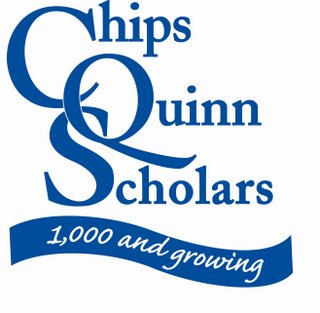 The Spring 2007 class -- along with two members of the Summer 2007 class -- gather in front of the Diversity Institute in Nashville, Tenn.
The Spring 2007 class -- along with two members of the Summer 2007 class -- gather in front of the Diversity Institute in Nashville, Tenn.I didn’t fully understand the experience I was about to embark on when I arrived at orientation.
This weekend was more than information about journalism and training for our internships. It was about support, great role models, mentors and the beginning of lifelong relationships.
I am used to doing everything on my own. I started working at age 14 and haven’t stopped. I went to Cuba by myself. I moved to a university of 45,000 students three days before school started, not knowing anyone. I moved myself. I paid for everything.
As I reflect on these experiences and the experiences of the weekend, I can honestly say for the first time that someone believes in me and that many people (besides my sisters) are behind me 100 percent.
I first applied for this program during my junior year and didn’t get in. I didn’t give up. I applied for the program the following year. Today as I sit here, I am glad that I did.
Most of all, I’m glad that there are people like (program founder) John C. Quinn who actually care about the future of the press and about each of us. The staff of the Chips Quinn Scholars Program is great, as well. They are the people who made this weekend a great experience and who give me hope for the future.
-- Maria Ines Zamudio, Summer 2007 Scholar, Springfield (Mo.) News-Leader (one of two Summer Scholars attending Spring orientation because of scheduling conflicts)
This weekend was more than information about journalism and training for our internships. It was about support, great role models, mentors and the beginning of lifelong relationships.
I am used to doing everything on my own. I started working at age 14 and haven’t stopped. I went to Cuba by myself. I moved to a university of 45,000 students three days before school started, not knowing anyone. I moved myself. I paid for everything.
As I reflect on these experiences and the experiences of the weekend, I can honestly say for the first time that someone believes in me and that many people (besides my sisters) are behind me 100 percent.
I first applied for this program during my junior year and didn’t get in. I didn’t give up. I applied for the program the following year. Today as I sit here, I am glad that I did.
Most of all, I’m glad that there are people like (program founder) John C. Quinn who actually care about the future of the press and about each of us. The staff of the Chips Quinn Scholars Program is great, as well. They are the people who made this weekend a great experience and who give me hope for the future.
-- Maria Ines Zamudio, Summer 2007 Scholar, Springfield (Mo.) News-Leader (one of two Summer Scholars attending Spring orientation because of scheduling conflicts)









